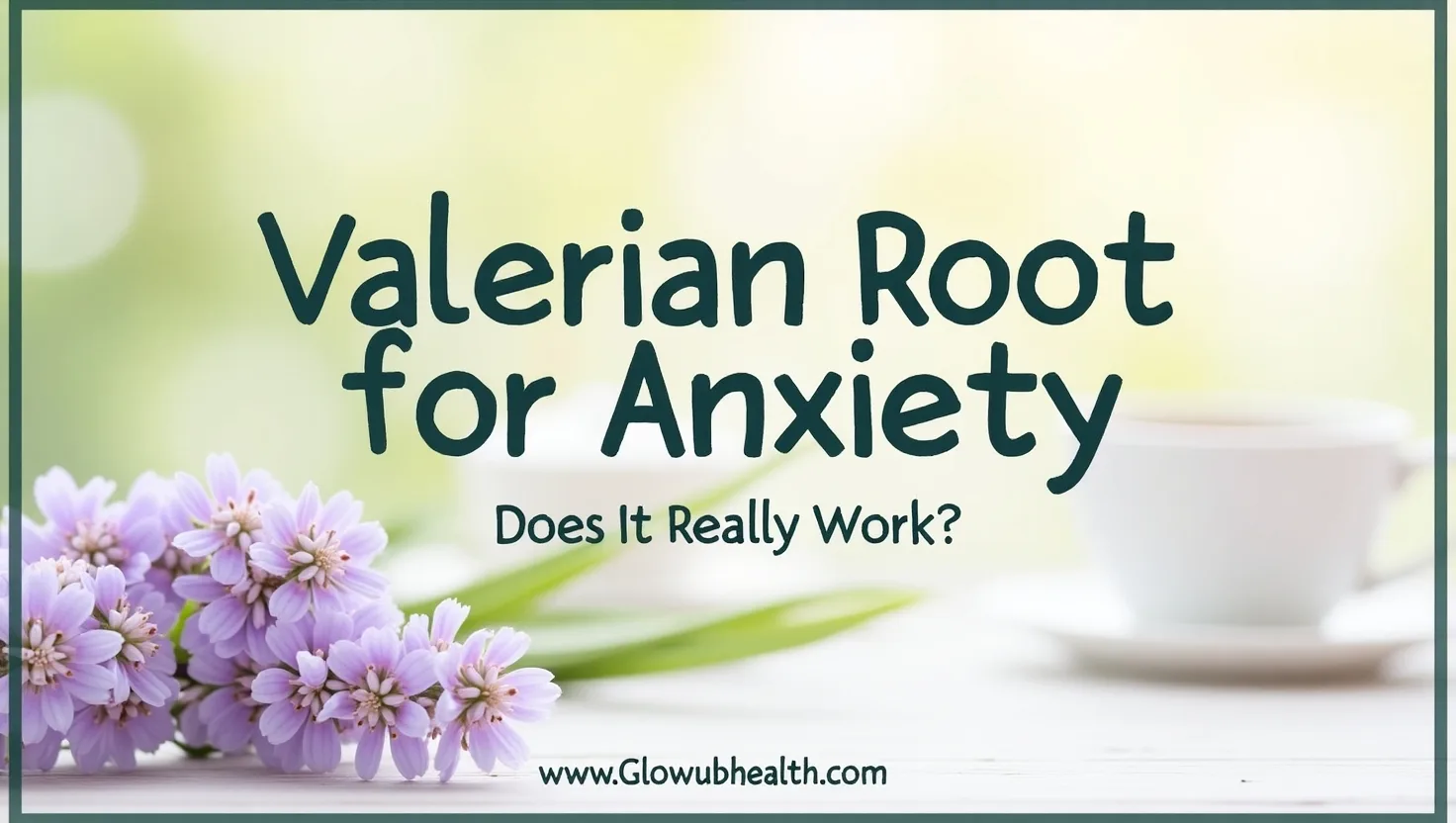Valerian Root for Anxiety: Does It Really Work?
Anxiety is something many of us struggle with daily. Whether it’s stress from work, social pressures, or just the weight of everyday responsibilities, finding natural ways to calm the mind is a priority for many. One herbal remedy that often comes up in conversations about stress relief is valerian root. But does it actually help with anxiety, or is it just another wellness trend? In this article, we’ll dive into the science, real-life experiences, and practical ways to use valerian root for anxiety relief.
This article is for informational purposes only and does not constitute medical advice. Always consult with your healthcare provider before using valerian root or any other herbal supplement, especially if you have a medical condition or are taking medications.
What Is Valerian Root?
Valerian root (Valeriana officinalis) is an herb that has been used for centuries to promote relaxation and sleep. Originating from Europe and Asia, it has a distinct, somewhat earthy smell that some people love—and others can’t stand! Traditionally, it’s been used to help with insomnia, nervous tension, and even digestive discomfort. But today, many people turn to valerian root to help manage anxiety naturally.
How Does Valerian Root Work for Anxiety?
1) Helps Calm the Nervous System
Valerian root works by increasing levels of gamma-aminobutyric acid (GABA), a neurotransmitter that plays a key role in keeping us calm. Many prescription anxiety medications, like Xanax and Valium, work in a similar way—though valerian is much milder and doesn’t come with the risk of dependency.
2) Reduces Stress Hormones
When we’re anxious, our bodies release cortisol, the stress hormone that puts us in “fight or flight” mode. Some studies suggest that valerian root can help lower cortisol levels, which may explain why it helps some people feel more at ease.
3) Supports Better Sleep
If you’ve ever tossed and turned at night because your mind won’t shut off, valerian root might be a helpful addition to your bedtime routine. Since lack of sleep can make anxiety worse, improving sleep quality naturally can have a big impact on mental well-being.
Does Science Support Valerian Root for Anxiety?
Research on valerian root and anxiety is still developing, but here’s what we know so far:
- A 2019 review in Phytotherapy Research found that valerian root had mild to moderate anti-anxiety effects, especially in people dealing with high stress.
- A 2015 study in the Journal of Evidence-Based Integrative Medicine showed that people who took valerian root extract felt less anxious and had better emotional balance compared to those who took a placebo.
- A 2021 study in Complementary Therapies in Medicine suggested that valerian root, when combined with lemon balm, was particularly effective for people with generalized anxiety disorder (GAD).
While these results are promising, valerian root isn’t a one-size-fits-all solution. Some people swear by it, while others don’t notice much of a difference.
What Do People Say? Real Valerian Root for Anxiety Reviews
Here’s what real users have to say about valerian root:
- “I’ve struggled with anxiety for years, and valerian root has helped me feel more balanced without making me drowsy during the day.”
- “I take valerian root tea before bed, and it has significantly reduced my nighttime anxiety.”
- “It works, but the smell is strong! I prefer capsules over tea because of that.”
On the other hand, not everyone has a positive experience:
- “I felt groggy the next morning, so I only take it on nights when I really need it.”
- “I didn’t notice much of a difference, but I know others who swear by it.”
How to Use Valerian Root for Anxiety
Recommended Dosage
- Capsules/Tablets: 300-600 mg before bed
- Tinctures: 1-3 mL in water, 30 minutes before sleep
- Tea: 1 tsp dried valerian root in hot water for 10-15 minutes, up to three times daily
Best Practices
- Start with a low dose to see how your body reacts.
- If using it for sleep, take it 30-60 minutes before bed.
- Avoid mixing with alcohol or sedatives.
- Consult a doctor before use, especially if you take other medications.
Side Effects and Precautions
Valerian root is generally safe, but some people experience:
- Drowsiness (which is why it’s best taken at night)
- Dizziness or mild headaches
- Digestive issues (like an upset stomach)
- Drug interactions (especially with sedatives or antidepressants)
If you’re pregnant, breastfeeding, or on medication, it’s best to check with a healthcare provider before taking valerian root.
How Does Valerian Root Compare to Other Remedies?
| Feature | Valerian Root | Ashwagandha | CBD Oil | Prescription Medications |
|---|---|---|---|---|
| Effectiveness | Mild-Moderate | Moderate-Strong | Moderate-Strong | Strong |
| Side Effects | Low | Moderate | Low | High (sedation, dependency) |
| Time to Work | 1-2 Weeks | 2-4 Weeks | Immediate-2 Weeks | Immediate-1 Week |
| Availability | OTC | OTC | OTC | Prescription Only |
If you’re looking for a gentle, natural alternative to prescription medications, valerian root is worth considering. However, if your anxiety is severe, you might need a stronger treatment plan.
Final Thoughts: Should You Try Valerian Root for Anxiety?
Valerian root is a solid natural option for people dealing with mild to moderate anxiety. While it’s not a cure-all, it can help promote relaxation, reduce stress, and improve sleep quality. If you’re considering giving it a try, start with a small dose, monitor how you feel, and adjust accordingly.
Key Takeaways:
- Works by boosting GABA levels and lowering cortisol.
- Helps with sleep issues and relaxation.
- Best for mild to moderate anxiety, but results vary.
- Should be used responsibly, following recommended dosages.
Have You Tried Valerian Root for Anxiety?
We’d love to hear about your experiences! Share your thoughts in the comments below or explore more herbal remedies for anxiety on our website.
Conclusion
Valerian root is a promising natural remedy for those dealing with mild to moderate anxiety. While research supports its calming effects, individual results vary. If you’re looking for a gentle, plant-based solution, valerian root may help reduce stress and improve sleep without the side effects of prescription medications. However, it’s essential to start with a small dose, be aware of possible side effects, and consult a healthcare professional if you have underlying health conditions or take other medications.
FAQ
1. Is valerian root good for anxiety?
Yes, valerian root has been shown to promote relaxation and reduce anxiety symptoms by increasing GABA levels in the brain. While results vary from person to person, many people find it helpful for managing stress and nervous tension.
2. How long does it take for valerian root to work?
The effects of valerian root can be felt within 30-60 minutes for some users, especially when taken as a tea or tincture. However, consistent use over 1-2 weeks may yield better long-term results.
3. Can valerian root be used during the day for anxiety?
Yes, but since valerian root may cause drowsiness, it’s best to start with a low dose to see how it affects you. Some people prefer taking it in the evening to unwind without daytime grogginess.
4. What is the recommended valerian root dosage for anxiety?
Capsules/Tablets: 300-600 mg per day
Tinctures: 1-3 mL in water
Tea: 1 tsp dried valerian root steeped in hot water for 10-15 minutes, up to three times daily
5. Can valerian root help with sleep as well?
Yes, valerian root is widely used to improve sleep quality. Since poor sleep can worsen anxiety, taking valerian root before bed may have dual benefits for both anxiety and insomnia.
6. Are there any side effects of valerian root?
Possible side effects include drowsiness, dizziness, mild headaches, and digestive issues. Some people may experience grogginess the next morning, so it’s best to test your tolerance first.
7. Can I take valerian root with other medications?
Valerian root may interact with sedatives, antidepressants, and other medications affecting the nervous system. Always consult a doctor before combining it with any prescribed treatments.






